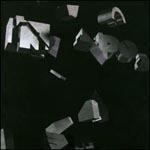
Interpol Interpol
(Matador)
It almost makes sense that Interpol have released the most polarizing record of 2010, it seems sometimes that nobody’s really agreed on them from the start. Turn on the Bright Lights gleamed at first, was beaten back under the attack of Joy Division comparisons and adolescence qualms, but held its head high during end-of-year/decade list seasons. Antics barreled through our speakers head first, once again turning heads and convincing a few misguided folks to say horribly reductive things like “America’s Radiohead,” and then Our Love to Admire arrived and, with a few exceptions, the band was beaten back on a critical level, but it also saw the best chartings of Interpol’s then middle-aged career.
And now, three years later, we have a self-titled record that’s even more morose, bile-spitting, disillusioned, and tired-as-hell than ever from a band that’s made their bread and butter on being morose, bile-spewing, disillusioned and tired-as-hell. How does a band four records deep make something like that? It must have something to do with their relatively newfound commercial draw, the first track is called Success and it’s not exactly a celebratory anthem. “Somebody make me say no, no no” drawls a nasally Paul Banks “I’ve got two secrets but I only told you one” he continues, it’s hard to think the band is this down after this long.
All that malaise is not entirely unfounded, after all the band just lost founder Carlos D – and any time a bona fide biological component of your group is suddenly absent it always points to some level of unrest. But this record points to a different sort of conflict, middle-track Barricade is all high-school breakup lyrically: “it starts to feel like a barricade, a barricade, to keep us away.” Memory Serves is one of the most somber instrumentals Interpol has ever penned, a slow-stepping downpour of blackened guitar texture – there’s something else going on inside of Interpol besides band drama. While not as good as Turn on the Bright Lights or Antics, Interpol is a work of emotional damage equal or greater to both of those albums. This is probably why its cover lays self-titled and so deconstructed: the band sounds absolutely exhausted.
When the pre-release single Lights first made it onto our computers, I think most of us were worried. Here was a slow-burning, empty-shell of a song accompanied by an equally austere video. It was such an odd choice for a comeback track, but now in retrospect, it symbolizes exactly what the record is all about: worked over, antagonistically resigned, almost passive-aggressive in its demeanor. And more importantly, when Lights comes in four songs deep it sounds precisely in place working as a key cog in a bigger machine. So I guess I’m the contrarian here, but I think Interpol deserve a significant amount of respect for taking the risk and mustering the sheer talent to create something so deeply submerged in melancholia you can’t even see light.
26 September, 2010 - 21:15 — Luke John Winkie